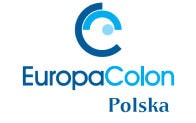Chemotherapy Selection Based on Therapeutic Targets for Advanced Pancreatic Cancer
NCT01394120
Interventional
Phase 2
Unknown status
In recent years, treatment of advanced pancreatic cancer is changing. Currently, there are several active schedules of chemotherapy that can be used, such as gemcitabine as monotherapy or in combination with capecitabine or erlotinib, and FOLFIRINOX. Moreover, the development of biomarker (therapeutic targets) that can predicte response to treatment is a new important tool to be used in clinical practice to select the best scheme for each patient. Preliminary studies showed that therapeutic target determination, using tumor tissue collected from patients, could determine the presence of groups of "chemotherapy responders". Such is the case of EGFR amplification and/or K-Ras gene status and correlation with response to erlotinib. Moreover, Thymidilate Synthase, Thimidine Phosphorylase, ERCC-1 and Topoisomerase I expression by immunohistochemistry in GI tumor samples has been related to resistance or response to 5FU-capecitabine, oxaliplatin and irinotecan respectively. Based on this data the investigators designed a phase II clinical trial to evaluate the efficacy of selected treatment for pancreatic cancer patients based on the determination of therapeutic targets. The therapeutic target-driven treatment efficacy will be compared to the prospective treatment of a control group of patients treated at the discretion of the physician-researcher
Aug 31,2011
All
18 Years
N/A
18 Years
N/A
60

